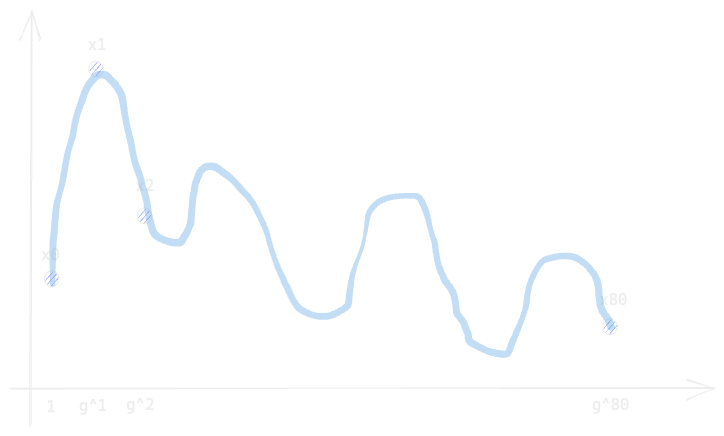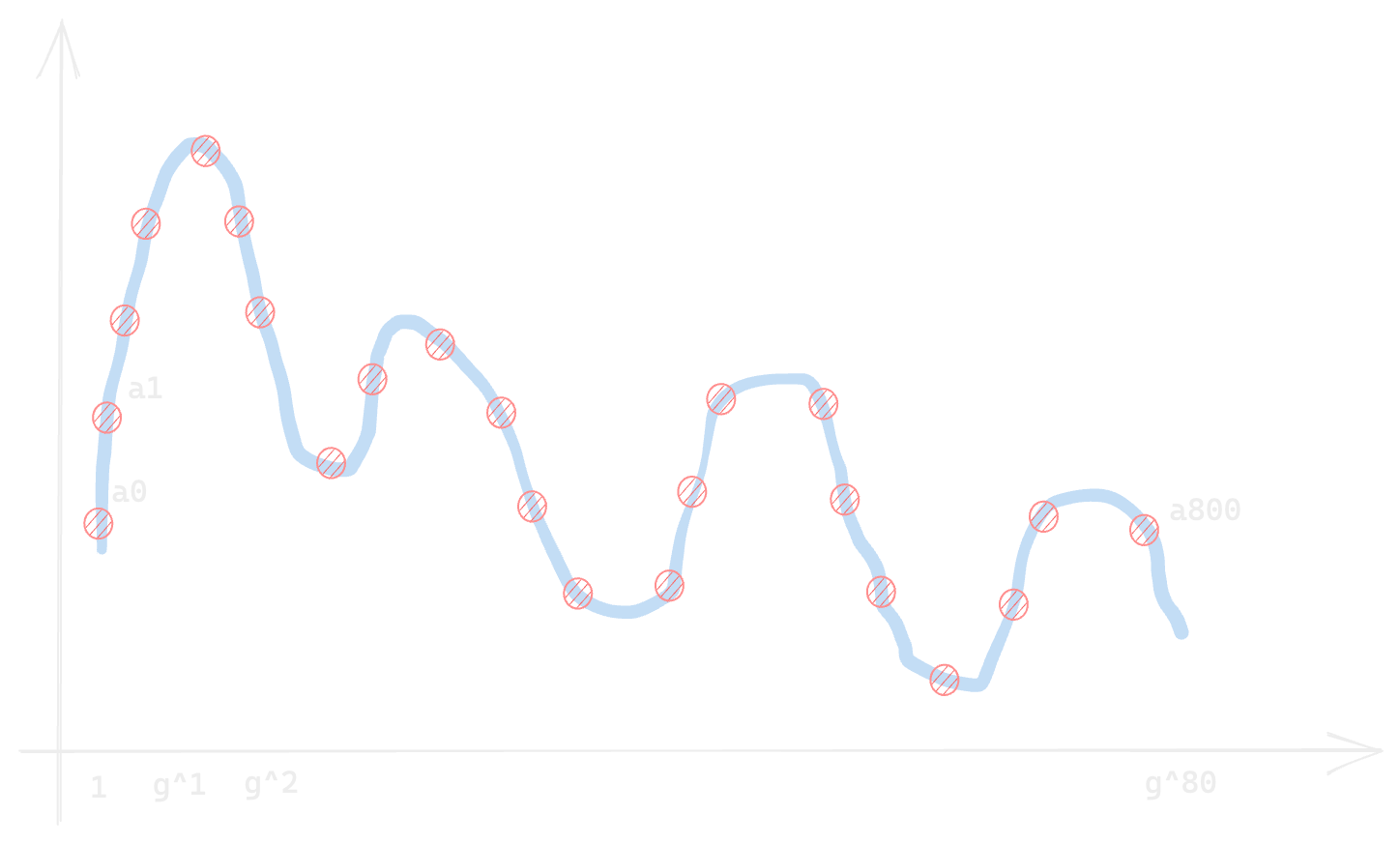Starks explained to my grandma
Kindly note that she had a MS in mathematics though
Let's get cooking!
Low degree polynomial extension with its FRIed constraints

Ingredients
- a problem to solve
- an arithmetization of the problem
- some notions about polynomials
- having heard about finite fields
~ integers bounded by a prime number - knowing that if \( x_0 \) is a root of a polynomial \(f \), then \( f \) has the form
\( f: x \mapsto (x - x_0) \cdot g(x) \)
Step 1
Have a problem to solve

Given an incomplete sudoku grid, I know a valid solution to this grid
Step 2
Arithmetize it

All values are in [1,9]
Lines are valid
The Low degree extension sauce
Where the actual Stark journey starts

Choose a special \( g \) value and associate all the Sudoku's \( x_i \) to its exponents
Step 1

Interpolate a polynomial going through all those points, let's call it \( f \)
Step 2
Then add a shitload of points on the polynomial, say 10 times the original points

Step 3
Commit these points

Step 4
Prepare the boiled constraints

Transform your problem into polynomial constraints
Step 1
Group the constraints
Let's say you have \( p_0 \), \( p_1 \) and \( p_2 \) contraints
Choose 3 random numbers \( \alpha , \beta \ , \gamma \)

Commit evaluations of \( cp \)
Step 2
FRI the constraints
or proving that \( cp \) is a polynomial

Proving that \( cp \) is a polynomial is hard, let's prove that it's close to a polynomial of low degree \( d \) instead
What's FRI anyways?
Proving \( f \) is close to a polynomial of low degree \( d \)
Proving \( g \) is close to another polynomial of low degree \( d / 2 \)
Receive a random number \( \alpha \) from the verifier
Separate \( f \) between odd and even exponents
\( f(x) = g(x^2) + x \cdot h(x^2) \)

Commit evaluations of \( f' \)
Step 1
Rince and repeat
dividing the degree \( d \) until \( d = 0 \)
...and commit the constant value of \( f \)
Step 2
Let it simmer for 2 hours
and serve it warm to the verifier
What are we serving to the verifier?
- The trace commitment: \( Merkle(x_i \in [0, 80]) \)
- The \( cp \) commitment: \( Merkle(cp(x)) \)
- The commitment at all FRI steps
- The constant value after applying FRI until \( d = 0 \)
What to serve with this?
- Starkware's Stark101: https://starkware.co/stark-101/
- Vitalik's Starks article series: https://vitalik.ca/general/2017/11/09/starks_part_1.html
- Proving Brainf*ck: https://aszepieniec.github.io/stark-brainfuck/
Bon appétit !
No time left for questions but do reach out to me for easy questions or Eli for hard ones